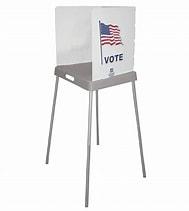In today’s political climate, NH voters are feeling the weight of a political system that doesn’t seem to be working for them. Property taxes keep rising. Public schools are being defunded. Decisions made in Concord often feel disconnected from the day-to-day lives of Granite Staters. In this environment, political listening sessions aren’t just helpful, they’re absolutely necessary.
Voter Frustration Is Real and Growing
NH residents are proud of our independence and civic engagement. We show up at town meetings, speak our minds, and value accountability. But over the past few years, that faith and trust has eroded. Voters have lost trust in their elected officials and we have given them every right to be frustrated. Many voters, especially in smaller towns and rural areas, feel ignored by state leaders.
Property taxes have gone through the roof while the state refuses to adequately fund public education. The Republican-backed school voucher program has drained millions of dollars from our local school districts, putting more of the burden on homeowners to fund basic services throughout the state.
Meanwhile, decisions about energy policy, housing, and healthcare are being made with little input from the people they affect most. It’s no wonder many voters are frustrated, disengaged, or downright angry.
We reps, at the state level, are trying to fix that.
On February 23rd, I sent out an email to our Democratic caucus.
“Have you been paying attention to the turnouts at town halls being held all around the country?
People are terrified, angry, and want to be heard. They are showing up.
Mostly they are being held by members of Congress, however, would it be effective for NH Dem State Reps to organize town halls in our districts? Should we start holding them and then getting word (media, videos, and quotes) out as they are held?”
At the time it was a glimmer, just something that I had noticed was happening and I was seeing the responses from the public. People were beyond angry and they were showing up for both Democrats and Republicans, mostly to give them a “piece of my mind.” I also noticed that the Republicans who are in the majority on the federal and state level quickly stopped holding listening sessions when the heat started to be turned up by voters.
What started off as a “what if we did this?”-suggestion quickly became a movement within the NH Democratic caucus. “Let’s do this,” said many of the reps and a group of committed Dem Reps worked together to come up with a format for holding the sessions.
We had to make considerations for security, for disruptors, should we include food, how long should the event be, was it better to have them on weeknights or the weekend?
And how would we control what could be a crowd that while generally supportive of our efforts wanted us to HEAR their frustration.
Ultimately, the way we hear our constituents is to listen to our constituents and so that’s what we ended up doing.
Bringing the Conversation Back to the Community
Our listening sessions have helped fix that disconnect. They’re simple, honest conversations where constituents can speak directly to their elected officials, not through filtered news reports or party talking points, but face to face.
In district after district, voters want to talk about how hard it is to afford to stay in their homes. They want to share their concerns about the impact of school cuts on their children and grandchildren. They want to ask why massive tax breaks go to out-of-state corporations while local businesses struggle to stay afloat.
These sessions were not about grandstanding, campaigning, or even asking for donations, they were about rebuilding trust and demonstrating that elected officials are accountable to the people, not the party.
Turning Feedback into Campaign Strategy
What’s said in a listening session doesn’t stay there — it becomes the backbone of strong, responsive campaigning. When we hear from a homeowner in Wolfeboro who’s worried about losing their home due to rising taxes, that story helps shape the messaging for the next election. When a teacher in Conway talks about missing resources in their classroom, that becomes a rallying point for restoring public school funding.
Listening sessions reveal not just what people care about, but how they talk about it. That language, those personal stories, are far more powerful than generic policy points. They help us craft messages that actually connect with voters, especially those who have tuned out traditional political rhetoric.
What have we learned from these sessions?
What started off as a suggestion to our caucus has become a state-wide movement.
To date we have held 29 listening sessions around NH. We’ve held them in bright sapphire-blue districts and we’ve even held them in the belly-of-the-beast-red districts. At every single event, we’ve gotten engagement, questions, and comments.
We have gathered a list of topics and concerns raised by each district, county, and by the state into a spreadsheet. We know what is on our voters’ minds.
Somewhat surprisingly topics that were not raised were abortion and LGBTQ+ rights (with the exception of two parents of trans children). It’s not that people weren’t concerned about these topics but they knew where we stood on the issues and they wanted to move onto other issues.
The topics that were raised at EVERY SINGLE session, however, were the school voucher program (many people didn’t understand exactly what it was and how it impacted them), rising property taxes, and housing (our children can’t afford to live in NH.)
We’ve also heard a fair amount of justified criticism. Voters want to know what our messaging is and what our plan is for the next election. Some have even said that they are going to hold off on donations until they hear that we have a plan going forward.
We Democrats reps are listening to our voters, we are collecting stories, comments, and suggestions, and from this information we are developing a strategy with messaging for the 2026 campaign.
A Path Forward for New Hampshire
We can’t wait for another crisis or another election to reconnect with voters. The time to listen is now. Listening sessions create space for real conversations and real solutions. They help elected leaders understand the full impact of policies, like education underfunding or energy infrastructure on the communities they serve.
Most importantly, they remind voters that their voice matters. That they’re not alone. And that there are people in government who are still willing to listen and act.
The NH Dem Caucus is going to continue holding our listening sessions. There are plans for evolution, some future sessions will focus on a specific topic, some will continue a general discussion, and some will be educational in nature - explaining how things work and how people can get involved in local and state politics. The common thread throughout all of the future sessions is that we will continue to listen to our voters, really hearing what they have to say.
In a state where “Live Free or Die” is more than a motto, listening to one another is how we preserve both freedom and community. Let’s make sure we’re doing it often, honestly, and with the intention to make NH work for everyone.
Wendy Thomas is a state rep for the town of Merrimack. In her third term, she sits on Science, Technology and Energy where she speaks up for renewable energy, while continuing to advocate for PFAS accountability and regulations. As a cancer survivor she also advocates for health issues and protections to the NH Therapeutic Cannabis program. Wendy can be reached at wethomas@gmail.com









